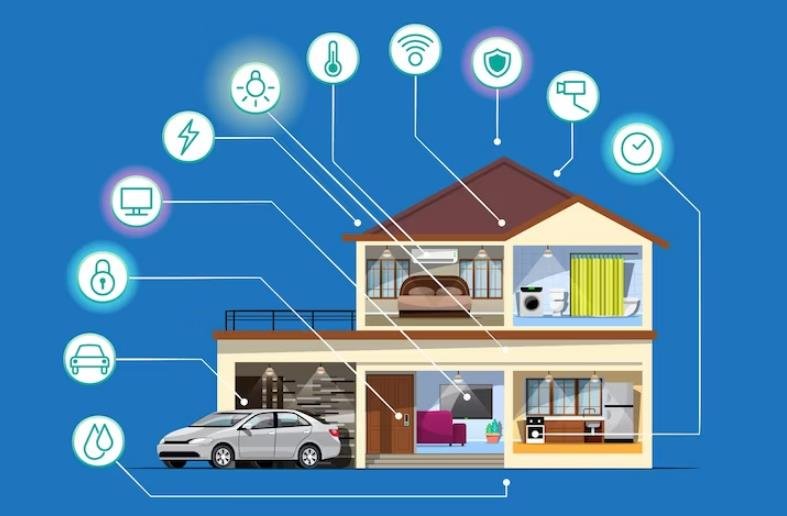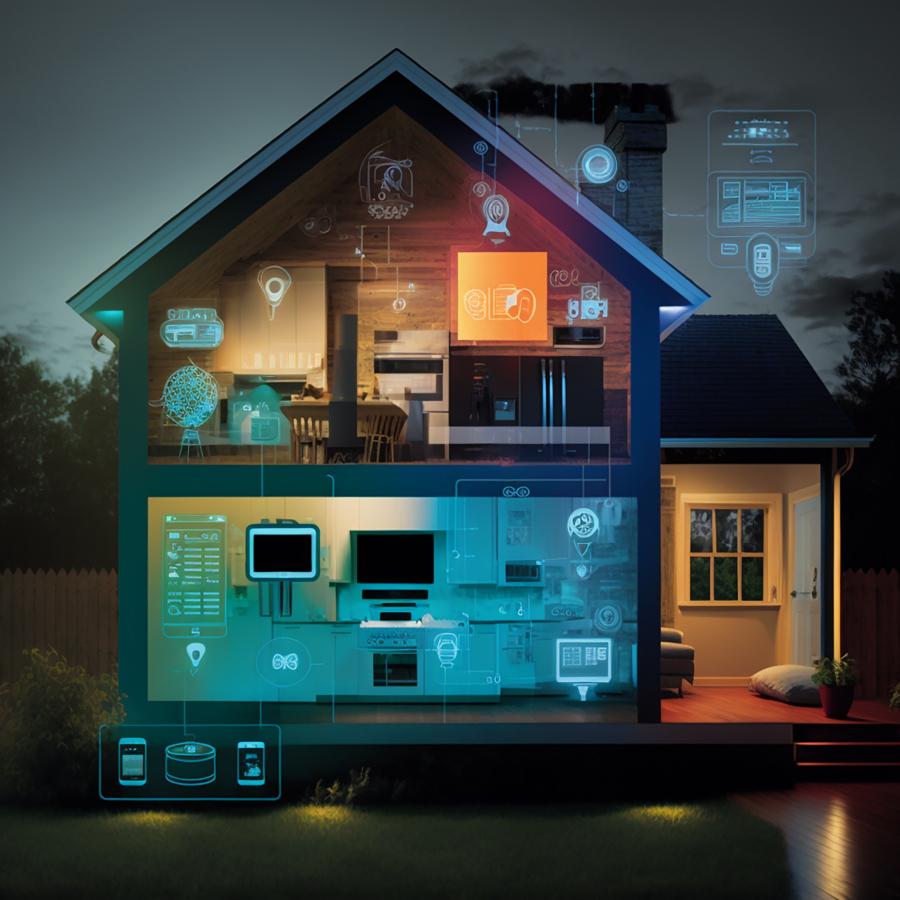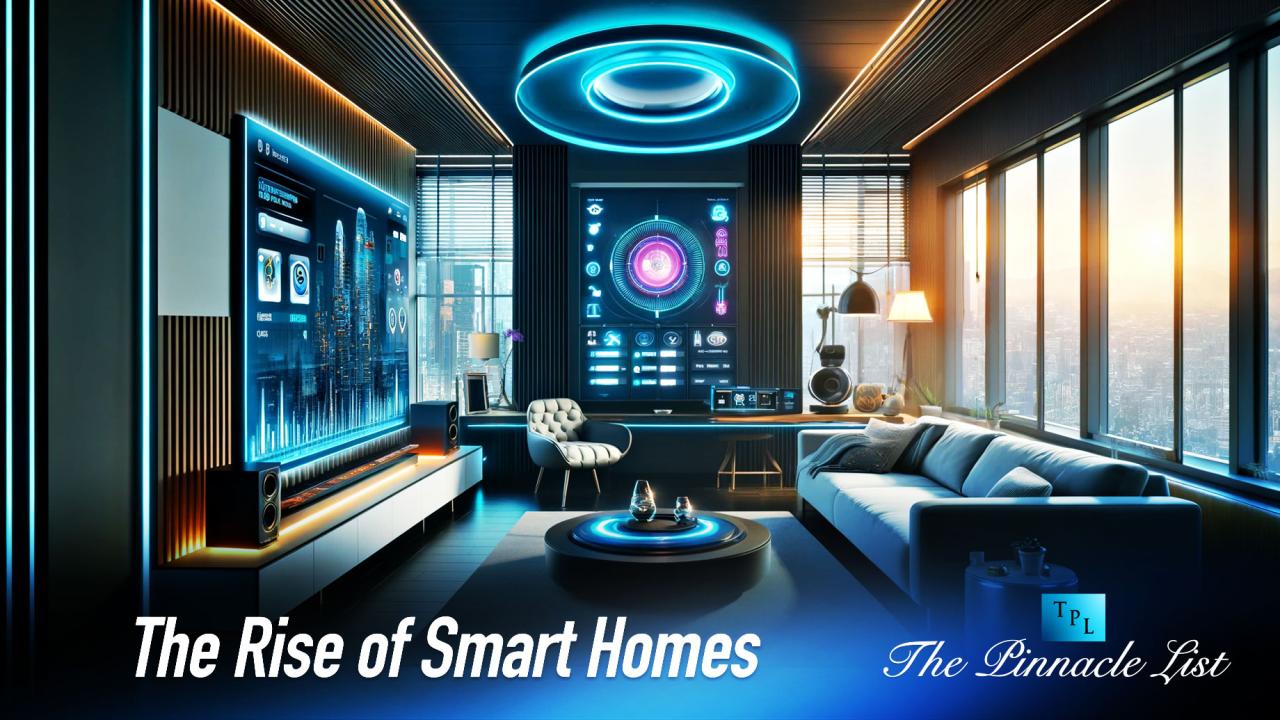The Rise of Smart Homes and the Future of Digilife

As we delve into The Rise of Smart Homes and the Future of Digilife, we uncover a fascinating journey filled with technological marvels and innovative solutions. From the evolution of smart homes to the integration of artificial intelligence, this topic paves the way for a future where digital and physical worlds seamlessly intertwine.
Exploring the latest trends and advancements in smart home technology, we are presented with a glimpse into a world where convenience, efficiency, and security converge to redefine our daily lives.
The Evolution of Smart Homes

Smart homes have come a long way since their inception, evolving from simple automated systems to highly sophisticated ecosystems that seamlessly integrate technology into our daily lives. These homes are equipped with devices and appliances that can be controlled remotely through smartphones or voice commands, offering a level of convenience and efficiency that was once unimaginable.
Popular Smart Home Devices and Functions
- Smart Thermostats: These devices adjust the temperature of your home based on your preferences and habits, helping to save energy and reduce utility costs.
- Smart Lighting: With smart bulbs and switches, you can control the lighting in your home remotely and even set schedules or create different ambiance settings.
- Smart Security Systems: From smart cameras to smart door locks, these devices offer advanced security features like motion detection, facial recognition, and remote monitoring.
- Smart Appliances: Smart refrigerators, ovens, and other appliances can be controlled and monitored from anywhere, helping you streamline tasks and save time.
Benefits of Smart Homes
- Convenience: Smart homes allow you to automate tasks and control devices with ease, making everyday life more efficient and enjoyable.
- Energy Efficiency: By optimizing energy usage through smart devices, smart homes can reduce energy consumption and lower utility bills.
- Security: Enhanced security features like surveillance cameras and smart locks provide peace of mind and protect your home from intruders.
Key Technologies Driving Smart Home Growth
- Internet of Things (IoT): The interconnected network of devices and sensors enables communication and automation within smart homes.
- Artificial Intelligence (AI): AI-powered systems can learn user preferences and adapt to optimize comfort, security, and energy usage.
- Voice Control: Virtual assistants like Amazon Alexa and Google Assistant allow users to control smart devices using voice commands, enhancing convenience and accessibility.
Integration of Artificial Intelligence

Artificial Intelligence (AI) technologies have revolutionized the way smart homes function, offering advanced capabilities that enhance convenience, efficiency, and personalization for users.
Role of AI in Smart Homes
AI plays a crucial role in automating tasks within smart homes, allowing devices to learn user preferences and adapt to their routines. Voice assistants like Amazon Alexa and Google Assistant use AI to understand and respond to verbal commands, enabling hands-free control of various connected devices.
Machine learning algorithms analyze data from sensors and devices to optimize energy usage, improve security, and provide personalized recommendations to users.
Privacy and Security Concerns
Despite the benefits of AI integration in smart homes, concerns about privacy and security have emerged. The constant collection and analysis of data by AI systems raise questions about data privacy and potential vulnerabilities to cyber attacks
Comparison of AI-Powered Smart Home Systems
Various AI-powered smart home systems offer unique capabilities based on their underlying technologies and integration with other devices. For example, Amazon's Alexa ecosystem emphasizes voice control and compatibility with a wide range of smart devices, while Google Assistant focuses on providing contextual information and seamless integration with Google services.
Apple's HomeKit prioritizes privacy and security by encrypting data and requiring strict authentication for device access. Each system has its strengths and limitations, catering to different user preferences and needs in the smart home environment.
Future Trends in Smart Home Technology

The future of smart home technology is poised for exciting advancements that will revolutionize the way we live. From IoT integration to predictive analytics, the possibilities are endless.
Interconnected Smart Home Ecosystems
In the near future, we can expect to see a seamless integration of various smart home devices and systems, creating interconnected smart home ecosystems. This interconnectedness will allow for enhanced automation, improved efficiency, and a more personalized user experience. Imagine your smart thermostat communicating with your smart lighting system to create the perfect ambiance as you arrive home from work.
Role of 5G Technology
G technology is set to play a crucial role in enhancing connectivity for smart home devices. With faster speeds, lower latency, and increased bandwidth, 5G will enable a more robust and reliable network for smart home devices to communicate with each other seamlessly.
This will result in quicker response times, smoother streaming, and overall improved performance of smart home systems.
Potential Challenges
While the future of smart home technology is promising, there are also potential challenges that need to be addressed. One such challenge is the issue of cybersecurity, as interconnected smart home ecosystems could be vulnerable to hacking and privacy breaches.
Additionally, ensuring compatibility and seamless integration among different devices from various manufacturers can also pose a challenge.
Last Point
In conclusion, The Rise of Smart Homes and the Future of Digilife paints a picture of a future where our homes are not just smart but intuitive, predictive, and interconnected. Embracing these advancements will undoubtedly shape the way we live, work, and interact with technology in the years to come.
FAQs
What are some popular examples of smart home devices?
Popular smart home devices include smart thermostats, smart locks, smart lighting systems, and smart security cameras. These devices offer convenience, energy efficiency, and enhanced security for homeowners.
How does artificial intelligence enhance smart homes?
Artificial intelligence technologies like voice assistants and machine learning enable smart homes to automate tasks, personalize experiences, and learn user preferences over time. However, there are concerns regarding privacy and security that need to be addressed.
What future advancements can we expect in smart home technology?
Future advancements may include increased IoT integration, predictive analytics for smart home systems, interconnected ecosystems, and the role of 5G technology in improving device connectivity. However, challenges in implementation and security may arise with these advancements.

